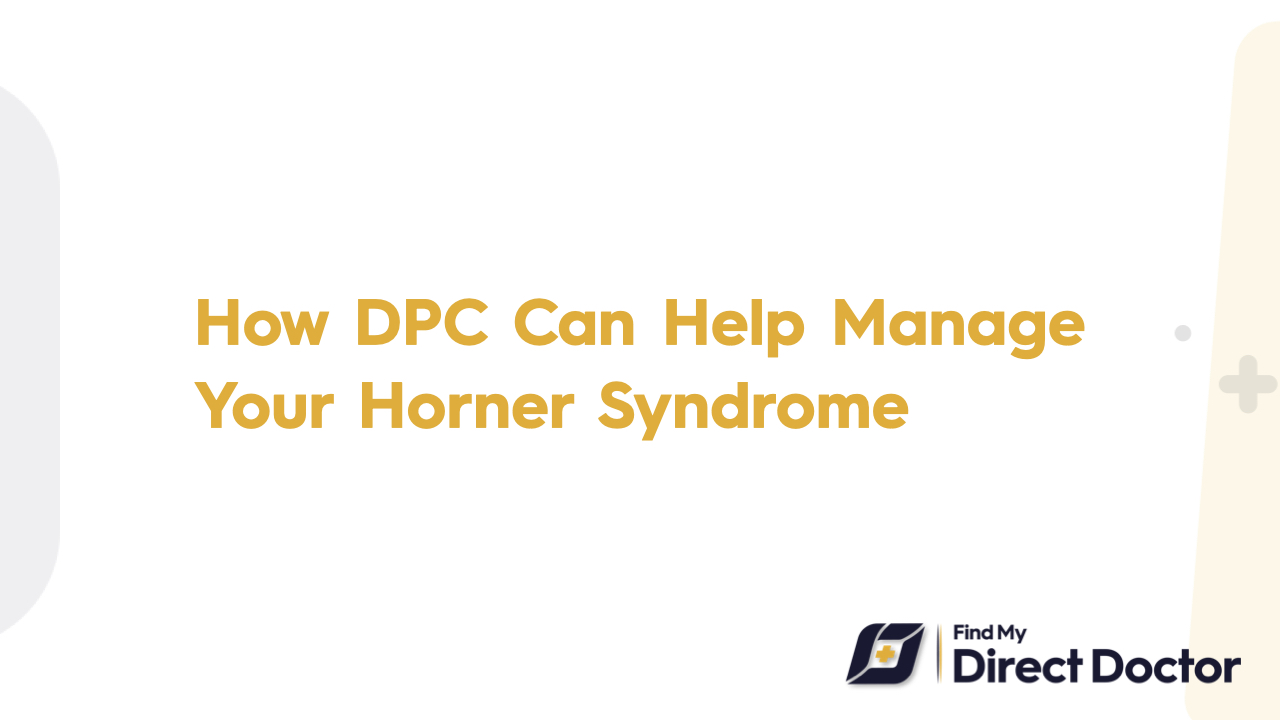



An uncommon neurological condition known as Horner syndrome is brought on by injury or disturbance to the sympathetic nervous system, which regulates a number of the body's automatic processes. Characteristic symptoms arise from this disturbance, which frequently affects the nerves that supply one side of the face and eye.

The three most obvious symptoms of Horner syndrome are a smaller pupil in the affected eye (miosis), drooping of the upper eyelid (ptosis), and anhidrosis (absence of sweating) on one side of the face. A somewhat sunken appearance of the affected eye and a change in pupil dilation in response to light exposure are two further possible symptoms. Horner syndrome is a symptom of underlying illnesses such as tumors, strokes, or nerve injuries rather than a disease in and of itself. Effective management requires early diagnosis and root cause treatment.
For the management of complicated illnesses like Horner syndrome, Direct Primary Care (DPC) offers a patient-centered approach that is very advantageous. Accurate diagnosis and successful treatment are made possible by this paradigm, which guarantees continuity of care and cultivates a thorough grasp of a patient's medical history.
When diagnosing Horner syndrome, DPC doctors work together to identify the root cause of the nerve disturbance. This could entail blood testing, imaging studies, or recommendations for neurologists and other experts. Patients and DPC clinicians have a close interaction, which guarantees regular symptom monitoring and fast treatment of any changes in condition.
Additionally, DPC places a strong emphasis on accessibility, allowing patients to talk about their symptoms and concerns in-depth without the time restraints that are frequently present in conventional healthcare settings. In the management of a condition as complex as Horner syndrome, this degree of involvement can have a big impact.
DPC's individualized therapy is very beneficial to patients with Horner syndrome. Longer meeting periods, which enable in-depth conversations about symptoms, possible causes, and available treatments, are one significant benefit. This thorough method guarantees that no information is missed.
The proactive monitoring that DPC doctors offer is another important advantage. Regular check-ins and an emphasis on patient education enable people to identify potential problems early on. This is especially crucial for diseases like Horner syndrome, where there may be dangerous underlying reasons that call for prompt treatment.
Additionally, DPC simplifies care by providing direct access to specialists and internal diagnostic tools. This gives patients peace of mind and expedites the resolution of their health issues by reducing delays in obtaining necessary tests and treatments.
DPC is a great option for addressing Horner syndrome because it is based on personalized care. Every patient has a customized care plan that takes into account their overall health objectives, the severity of their symptoms, and the underlying cause that has been found.
This individualized strategy for Horner syndrome patients may involve symptom-specific therapies, coordination with specialists, and routine nerve function assessments. In addition to treating the current symptoms, DPC doctors frequently provide lifestyle advice that might help patients preserve their general health and lessen possible triggers.
From a precise diagnosis to thorough follow-up care, every facet of a patient's condition is taken care of thanks to this individualized emphasis. By adopting a comprehensive strategy, DPC gives patients the confidence and support they need to move through their health journey, boosting results and quality of life.
Previous Post